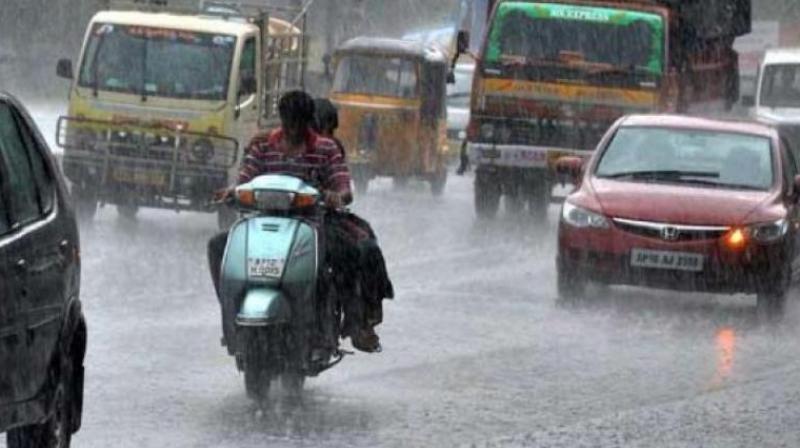Over dependence on monsoon by TN

Chennai: Parched soil, unwatered plants in the garden, men and women waiting for hours to fill a pot, digging up dried wells hoping to find water have become a common sight in Chennai, which has seen a sharp decline in the ground water level. Chennai is not alone in its struggle for having its daily dose of water. Barring nine districts, 22 districts in Tamil Nadu have seen the groundwater level plummeting thus causing more stress for water.
As per the statistics available with the PWD, the average ground water level status in Tamil Nadu as on May end this year, compared to the corresponding month in 2018, Nagapattinam,
Tiruchi, Erode, Coimbatore, Tiruppur, Dindigul, Madurai and even the arid Ramanathapuram district (0.66 metres) and Theni recorded an increase in groundwater level from 0. 21 metres to a maximum of 2.54 mts. During the same period, while Tiruvallur among 22 districts that registered a decline, saw a decrease of 0.68 metres, Perambalur saw a decline by 4.65 mts. The data was compiled from 31 observation wells.
Owing to acute scarcity, the state government has already declared 24 districts, including Chennai, as drought-hit, apart from 38 other blocks in seven districts.
According to the Central Ground Water Board, an apex Organisation under Ministry of Water Resources, River Development and Ganga Rejuvenation, in general, water levels are deep in the month of May and a rising trend of water levels during January (post-monsoon period) was observed. Water level fluctuation takes place during August, November and January depending on the monsoon rainfall and level of groundwater development.
During the pre-monsoon period, the depth of water levels of 5 -10 m bgl is more prevalent in the state.
According to the Natural Resource and Climate at TERI, the main reason for the water stress is over-dependence on monsoon.
Households and farmers are not the sole users of groundwater. There are then the licensed packaged drinking water plants in Tamil Nadu and a majority of them depend on deep-bore water.
On an average about 5,000 to 20,000 litres per hour are extracted depending upon their purification and packaging capacities. The Greater Tamil Nadu Packaged Drinking Water Association has 350 manufacturing plants in Chennai, Tiruvallur and Kancheepuram districts, as members.
Adopt Israel model in tackling water crisis
Averring that Tamil Nadu urgently needs to explore other means to ensure water to the parched throats besides meet the agriculture needs, BJP state
president Dr Tamilisai Soundararajan suggested that the Israel model of installing desalination plants could be adopted to tackle the water crisis.
Israel has solved its water woes by investing in smart water management and advanced water technology.
“A team of officials should visit Israel to study their successful model and attempt to replicate it here,” she said.

